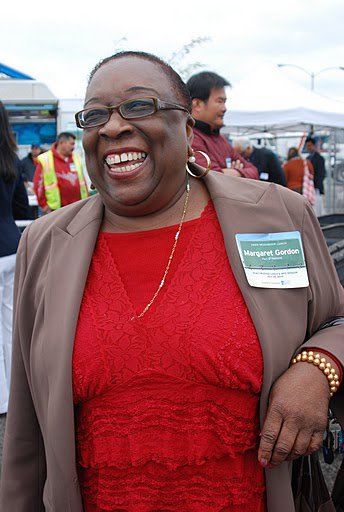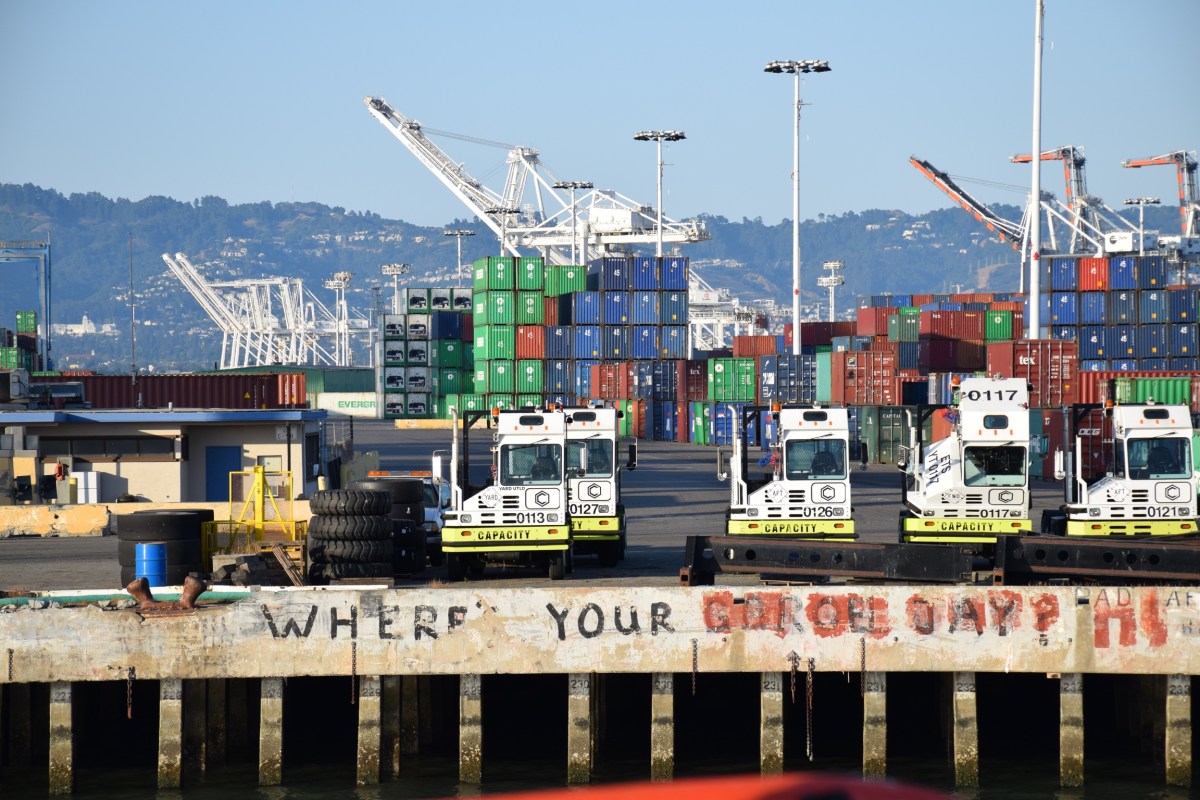This story was produced in collaboration with Living Downstream: The Environmental Justice Podcast, an NPR One podcast presented by Northern California Public Media.
West Oaklanders used to call Seventh Street “the Harlem of the West.” It was once a thriving row of theaters, jazz clubs, and other Black-owned businesses that attracted artists and gave the neighborhood a singular identity. Today, physicians describe West Oakland as “a diesel death zone.”
Oakland’s northwestern corner is bordered by a massive metal processing facility, cement and steel companies, a postal distribution center, an East Bay Municipal Utility District facility, three freeways, and the Port of Oakland. The neighborhood consistently ranks among the worst in the nation for ozone and particle pollution.
“It gets in the back of your throat,” says Ms. Margaret Gordon, who lives off Seventh Street. She’s the co-founder of West Oakland Environmental Indicators Project (WOEIP). For decades, she and other community members have spoken out about the diesel truck traffic that keeps their neighborhood shrouded in pollution. WOEIP has built a reputation statewide as a bridge between the community and the scientific, political, and regulatory worlds.
Ms. Margaret moved to West Oakland in 1992, the third generation in her family to settle here. She’s been an activist since she was 15. Her family’s home in San Francisco was sandwiched between two enormous development projects, Highway 280 and BART. She joined her parents in their campaign to save houses that would’ve been demolished. The matriarchs of her family were riveters at Bethlehem Steel. Her brothers were Black Panthers. She was almost pre-destined to become a community leader. In 2008, Mayor Ron Dellums appointed Ms. Margaret to be a port commissioner.

Last summer, Ms. Margaret and her neighbors received some good news. California passed the Advanced Clean Truck Rule, a first-of-its-kind policy that requires truck makers to sell an increased number of electric vehicles beginning in 2024. It’s a strong start, and a few other states are following suit.
Still, the rule doesn’t address all of the industrial polluters that contribute to West Oakland’s widespread asthma hospitalizations, cancer cases, and more recently, COVID death rates. According to the Alameda County Health Department and the American Lung Association, West Oaklanders are hospitalized for asthma attacks nearly twice as often as those living elsewhere in the county. Life expectancy in West Oakland is six years shorter than the county average, due to cumulative health risks.
“Nothing that allows diesel emissions for another day is strict enough for what’s going on in West Oakland,” says WOEIP’s co-director, Brian Beveridge.
In this audio story, we meet Ms. Margaret, Brian, and other allies fighting to shift the environmental paradigm in West Oakland. Their efforts show what can happen when groups prioritize power-sharing and work to understand the systems of oppression that create environmental racism.
“As long as we have capitalism, we’re going to have a struggle.” Ms. Margaret says. “People are talking about climate change. They also got to connect environmental justice. You cannot separate the two. Both of them are doing harm, not just to the planet, but also to the people.”
Sarah Holtz is an independent radio producer based in Oakland. Her work has also appeared on NPR, Boston Public Radio, Houston Public Media, New Orleans Public Radio, and USA Today.

